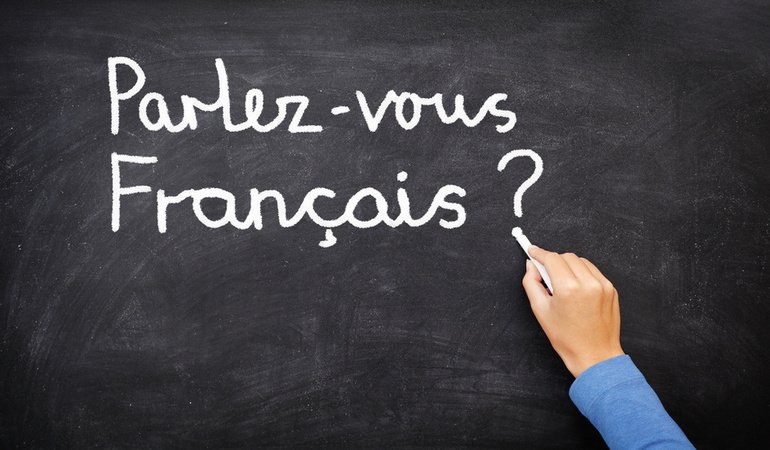French for Travellers
10-10-2016Useful French words and phrases for travellers
Soon travelling to France? It is always useful to know basic words and phrases when travelling to a land with a different language. Not only does it help you save time and effort during the travel, but it also helps you travel with confidence.

We tell you some of the French words and phrases that are especially useful for people travelling to France.
Greetings and Courtesy
Greetings are an important part of the French language. Many of these words are very easy to learn. All you need is a little practice before you step on to the French land. Using these words during your travel will definitely put you in a better position as a traveller and make things a lot easier.
Bonjour
In French, ‘bonjour’ stands for ‘hello’. Everywhere you go in France (from supermarkets to restaurants to public buses), you will be greeted by the natives with ‘bonjour’. So the next time when someone says ‘bonjour’, you know you have to reply with a ‘bonjour’.
Salut
‘Salut’ is just an informal word for ‘bonjour’. The English equivalent of ‘salut’ can be a simple and informal ‘hi’. It is common among young people and friends to greet each other with ‘salut’. So you will rather want to use it with a person younger than you, or someone who you know informally.
Bonsoir
All those people who were saying ‘bonjour’ to you in the morning will be heard saying ‘Bonsoir’ as soon as the sun sets. Yes, no prizes for guessing! It is because ‘bonsoir’ means ‘good evening’ in French.
Au revoir
Every time you leave a place, for instance a supermarket or a restaurant, you will be greeted with ‘au revoir’. This means ‘goodbye’ in English.
Bon Journee
Most of the times, especially during the day, ‘au revoir’ will be accompanied by ‘bon journee’. ‘Bon journee’ means ‘good day’. Combine these two words, ‘au revoir’ and ‘bon journee’, to get ‘goodbye, have a nice day!’. So the next time, when someone greets you with the above words, you simply have to repeat the same words in reply.
S'il vous plait
Every time you ask someone for something or place an order in a restaurant, don’t forget to use ‘s'il vous plait’. It means ‘please’.
Merci
‘Merci’ is quite a useful word to learn. It translates into English as ‘thank you’.
Practical Phrases
Oui
‘Oui’ means ‘yes’. Let us say ‘oui’ if you understood this!
Non
So you did not understand? No problem, say ‘non’. It simply means ‘no’.
Pourquoi?
'Pourquoi?' stands for 'why?'.
Comment?
'Comment?' stands for 'how?'.
Je ne parle pas Français
How about saying ‘I do not speak French’ in French? This can be a very useful phrase in a number of situations.
Parle vous anglais ?
‘Parle vous anglais?’ means ‘do you speak English?’. On occasions when you find difficulty communicating in French, ask for help by using this phrase.
Je ne comprends pas
If you do not understand something, you say ‘je ne comprends pas’. The word ‘comprends’ is similar to the English word ‘comprehend’, which means ‘understand’.
Répétez, s'il vous plait
The word ‘répétez’ means ‘repeat’ in English. The complete phrase here means ‘repeat, please’.
Nous sommes perdus
It is a phrase to say ‘we are lost’.
Hotel bookings
J’ai une reservation
A very useful phrase for your hotel check-ins is ‘j’ai une reservation’. It means ‘I have a reservation’.
Wi-Fi
Checked-in? But forgot to ask the Wi-Fi code? No problem! Say ‘quel est le mot de passe wifi?’, which means ‘what is the WiFi password?’
Shopping
C’est combien?
If you are out for shopping, it is very likely that you would want to ask for the price of items. ‘C’est combien’ means ‘how much is it?’
Grand/Petite
Grand means 'large, while 'petite' means 'small'. Thee are useful words to know when looking for the appropriate size of an item
Sac
You may be asked by the person at the cash counter if you need a carry bag. A 'sac' is a 'carry bag'.
Restaurant
Une table pour deux/quatre personnes
The above phrase literally translates into ‘a table for two/four people’. Use ‘trois’ for three, and ‘cinq’ for ‘five’.
Je voudrais
‘Je voudrais’ means ‘I would like’. You can use this phrase while pointing towards the dish on the menu (la carte).
You will be certainly greeted by ‘bon appétit’ by your waiter/waitress. ‘Bon appétit’ stands for ‘enjoy your meal’. So don’t forget to say ‘merci’ in reply.
L’addition
Asking for a bill is pretty easy! Say ‘l’addition, sil vous plait’. In English, this translates to ‘bill, please’.
Où est...?
Finally, the one phrase that will always prove useful is ‘ou est’. Each time you are looking for something, you can use ‘ou est...’. ‘Ou est’ stands for ‘where is’ in English. Sometimes you may need to know simple things such as ‘where is the museum?’, ‘where is the restroom’, or ‘where is the bar?’. In such situations, you can use ‘Ou est...’, followed by whatever you are looking for.
If you are heading to Paris, do not miss eating these 5 foods.
Are you planning to travel by car? Check out for cheap parking in Paris.


